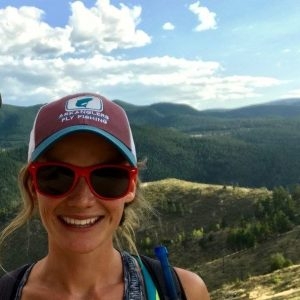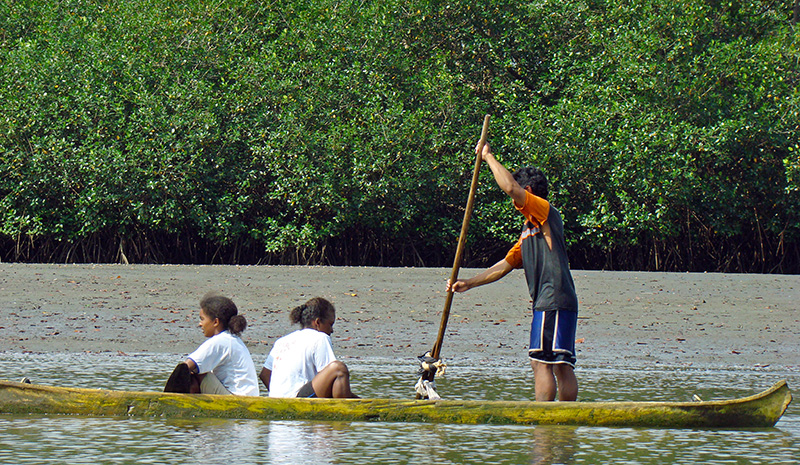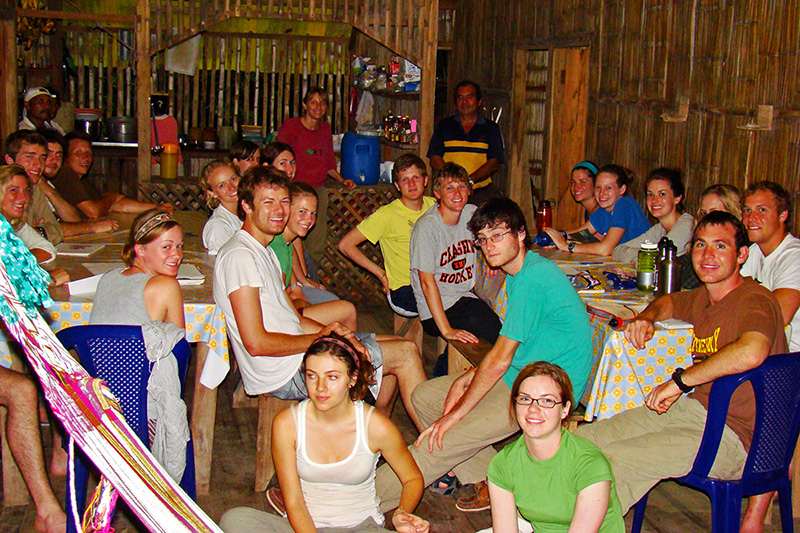
Jamie Hogberg is a 2009 alum of Ceiba Foundation’s Tropical Conservation Semester. In a recent interview, she explained how her experience studying abroad with Ceiba ignited her passion and dedication to a career in conservation. “The TCS program provided me with a strong foundation in conservation science and practice, and a multitude of the often-intangible life lessons that have helped shaped my decisions and actions as a world citizen. The friendships and mentorship gained through my experience with Ceiba were truly life-changing and invaluable to my life and career path.”
Jamie went on to work for Ceiba in the Madison office as our U.S. Administrator. She also worked as an avian field biologist for several conservation NGOs, and completed her MS in Conservation Biology at the University of Wisconsin-Madison. Following her graduate program, Jamie was hired to develop and coordinate a new professional MS program in Environmental Conservation at the Nelson Institute for Conservation Biology. While there, she founded the Wisconsin Chapter of the Society for Conservation Biology, and chaired the North American Congress for Conservation Biology in Madison. She now lives and works in Boulder, Colorado as the Director of Operations for the Society for Conservation Biology North America. Here are her responses to a few questions about how she traces the line from the TCS program in Ecuador to her present career.
“While in large part I am drawn to this work as I understand and value the environmental benefits of maintaining biodiverse and resilient ecosystems, my motivation is much more personal, and fully encompasses the human experience and responsibility to conservation for current and future generations. I have had the privilege of spending significant time in the outdoors and have found these experiences to be among the most beneficial and restorative in my life. Spending time in nature is a consistent pillar of strength, acceptance, and peace. I am compelled to share this with others and ensure our environment can sustain and coexist with human use.”

Jamie contemplating the value of water on a desert island in the Galapagos
“While it may be overwhelming at first as you begin to learn more about current issues and environmental history and politics, do not get discouraged! It can be daunting and feel as if you may not be able to make a difference in the wake of so many environmental problems. Yet, it is important to find your niche within the movement and be patient with yourself as it will take time to discover this and undoubtedly you will take multiple paths to find where you are most impactful. Additionally, get involved in student organizations, committees, etc. early! These efforts go a very long way in connecting you to like-minded students, learning the inner-workings of applied conservation work, and building your resume.”
“Working from start to finish to design, implement, analyze, and communicate findings of our research projects was without a doubt the most beneficial experience during the TCS program. I have used every step of the scientific process on many projects since, and this foundation was critical to guiding me toward a career in conservation. Additionally, living, working, and traveling with other students for five months provided me with a great sense of awareness and ability to adapt and collaborate in many situations, be it in the field or office.”

Mangroves protect river environments that supply fish to local families like this one
“During the internship portion of TCS, I worked with [marine conservation organization] Equilibrio Azul on a number of projects, including monitoring sharks harvested as bycatch (an unregulated and unsustainable practice that is depleting shark populations), surveying live sea turtle populations, as well as performing necropsies on sea turtles that had consumed garbage. It was an eye-opening experience, and exposed me to an array of conservation issues related to marine life.
Later, as a graduate student, I returned to Ecuador and developed an adaptive conservation plan for mangroves threatened by shrimp farming operations along a small river inlet on the central coast. Alongside Ceiba’s Program Manager, I presented findings and suggested actions to the Mayor and community in the surrounding area. Our collective efforts resulted in a conservation agreement to cease additional development that would destroy mangrove habitat along the river.”

Students in the 2009 TCS program attend lecture at the Lalo Loor reserve
Jamie (front left, in blue chair) was part of an incredible group of students, the 2009 TCS class. Among the group is Carl Hutter (back center, yellow shirt), who went on to a doctoral degree studying tropical frogs, and discovered several new species, among them one he named after the El Pahuma reserve where he found the new frog! Teal Potter (left of Carl, green shirt) completed her Ph.D. at the University of Colorado at Boulder studying soil microorganisms, and is now starting a postdoc at Wisconsin to examine soil fertility in organic farms. Mark Ladd (for right, white shirt) switched from forestry to marine studies after being blown away by the Galapagos’ undersea world, and now leads a Marine Biology summer course in Belize for Ceiba!
At the Ceiba Foundation we pride ourselves on offering study abroad opportunities that give students unparalleled access to ongoing conservation and research programs, and provide them with hands-on training in skills valuable to tropical ecology. Some go on to be scientific researchers, others become environmental educators, and others like Jamie pursue a career in conservation biology. We are delighted by the successes of all our former students, and are honored to have played a role in their professional development … you kids rock!